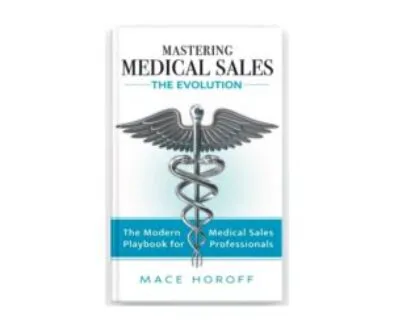The Big Rookie Medical Sales Mistake
A sure sign of an ineffective, rookie medical sales rep is one who infuses the sales conversation with statements such as:
“This is the best on the market.”
“This will be great for your practice.”
“Your patients will get better results.”
“My product has numerous advantages over what you’re currently using.”
…and any statement that the salesperson begins with, “I think…”
Doctors and other healthcare professionals aren’t interested in your opinion. You’re a sales rep. They know that you’re approaching them with the goal of trying to make a sale, which is looking out for your best interest, not theirs.
What matters to them, is not your opinion. It’s their opinion. Your job is to help them to formulate that opinion such that they see your product favorably.
The way this is done is to present data and evidence. Scientific journal articles and white papers from respected authors go a long way towards impacting the doctor’s opinion. What is often more powerful though, is anecdotal evidence that you can present that describes how your product allowed one of the doctor’s colleagues to obtain better patient outcomes, reduce risk, save time or any other valued benefit.
Once you’ve done that, this is where sharing an opinion can be extremely compelling. It can’t be your opinion, though—it needs to be the opinion of one of the doctor’s respected colleagues. “Dr. Adams told me point blank that I need to get this device into the hands of every Internist because it will make their lives easier and their patients healthier.” Even if the doctor doesn’t have enormous confidence in Dr. Adam’s opinion, it’s infinitely more powerful coming from another doctor than it is from a sales rep just trying to make a sale.
The power of social proof, such as this, is that it’s believable because your customers can verify it. So, make sure any stories you share are verifiable by the clinician you will be referencing, if your customer ever asks. The reality is, your customers will rarely call a colleague to verify your stated claims unless a large capital investment is at stake.
Remember, when you’re talking to clinicians, minimize the use of the word “I” in your conversation. The word “you” is infinitely more powerful because that’s who the customer cares about the most. Second to that is when you use the words “he” or “she” to refer to a colleague’s positive experience.
When you say “I” too often, you’re likely giving your opinion. The customer doesn’t care. Unless a customer specifically asks for your opinion, keep it to yourself. Even then, reference the opinion of a higher authority who has credibility. That’s what high-earning professional salespeople do.


